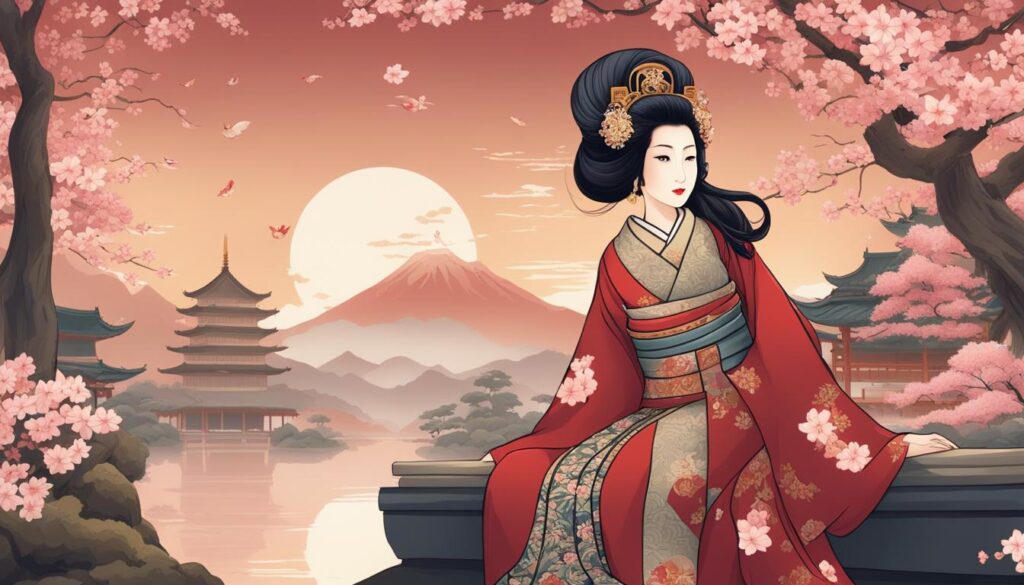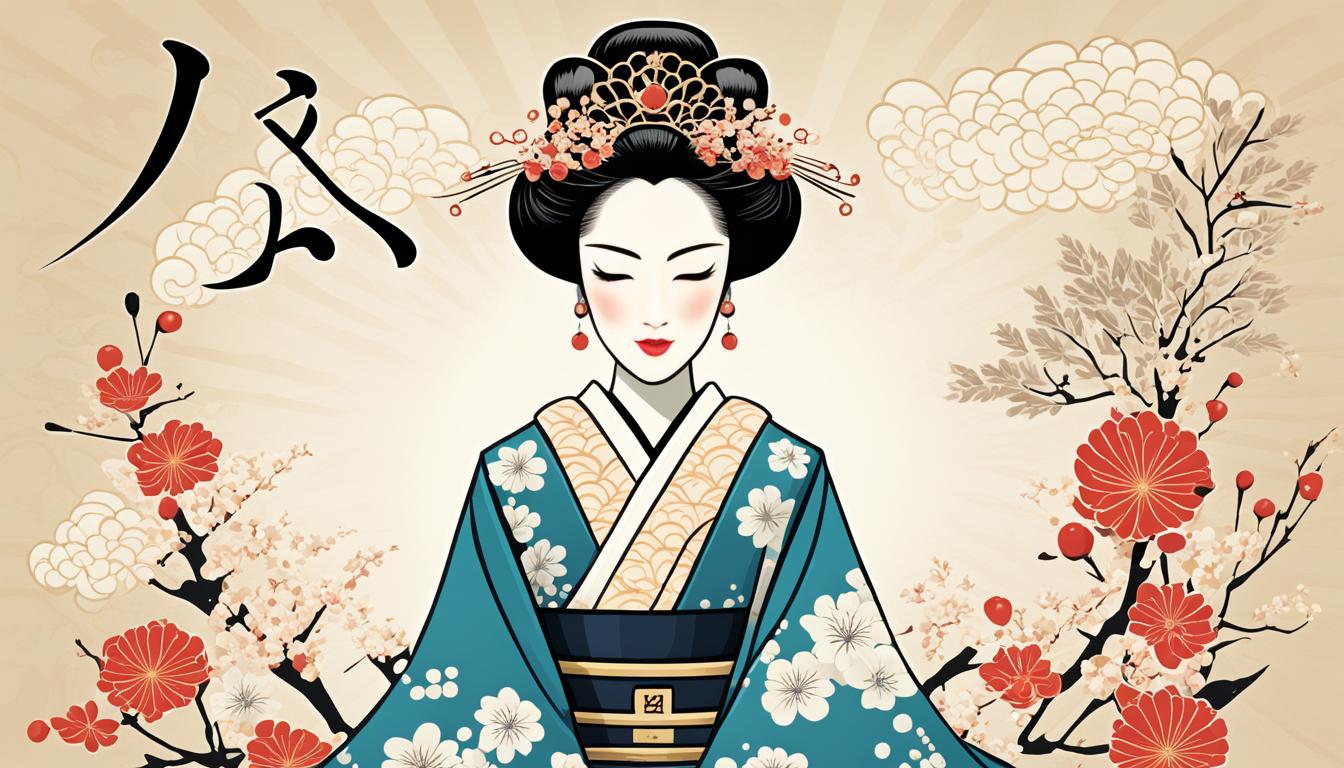In this article, we will explore how to say “queen” in Japanese and discover the meaning, pronunciation, equivalent words, and cultural significance of this term. Whether you are studying the Japanese language, interested in Japanese culture, or simply looking to expand your vocabulary, knowing how to say “queen” in Japanese can be both informative and valuable.
How to Pronounce Queen in Japanese.
Learning how to pronounce “queen” in Japanese correctly is essential for mastering the language. The Japanese word for “queen” is じょおう (jo-oh). When pronouncing it, remember to start with a soft “j” sound, similar to the “zho” sound in the French word “jeune.” Then, smoothly glide into the “o” sound, pronouncing it like the “o” in “boat.” Avoid making a separate break between the “j” and “o” sounds to ensure accuracy.
Note: The image above provides visual guidance for correctly pronouncing “queen” in Japanese.
Japanese Translation for Queen.
The Japanese translation for “queen” is 女王 (じょおう). This is the most common and widely understood term for queen in the Japanese language. It is used to refer to the female ruler of a country or a female monarch.
Understanding how to say “queen” in Japanese is essential for those interested in the language. The term 女王 carries cultural significance and represents power and authority. To pronounce it correctly, use the pronunciation じょおう (jo-oh). Practice saying the word aloud, and listen to native speakers for guidance. With dedication and practice, you can master the pronunciation and usage of the word 女王 in the Japanese language.
Alternative Term for Queen in Japanese.
In addition to 女王 (じょおう), another term that can be used for queen in Japanese is 妃 (きさき). This term can be translated as “empress” or “queen” and is used to refer to the wife of an emperor or a female ruler. It has a slightly different connotation and usage compared to 女王, so it is important to use the appropriate term based on the context.
Comparison of Terms for Queen in Japanese
| Term | Meaning | Usage |
|---|---|---|
| 女王 (じょおう) | Queen | Referring to a female ruler of a country or a female monarch |
| 妃 (きさき) | Empress/Queen | Referring to the wife of an emperor or a female ruler |
As shown in the table above, both 女王 and 妃 can be used to refer to a queen in Japanese. However, their meanings and usages differ slightly. While 女王 specifically denotes a female ruler or monarch, 妃 is used to indicate the wife of an emperor or a female ruler. It is crucial to choose the appropriate term based on the specific context and the role being referred to.
The image above provides visual representation and reinforces the alternative term for queen in Japanese, 妃 (きさき). This image further highlights the cultural significance and visual aspects associated with the term.
Japanese Cultural Significance of Queen.

In Japanese culture, the role of a queen holds immense significance, particularly within the context of the imperial family and the emperor. The term 女王 (じょおう) is frequently used to refer to the queen of a foreign country or a queen regnant in a monarchy. The title and role of a queen in Japanese society carry deep symbolism and earn great respect, especially when associated with the imperial family and the traditions surrounding the emperor.
Throughout history, queens in Japan have played crucial roles in shaping the nation. They have exerted influence and contributed significantly to the country’s politics and culture. One notable queen is Empress Himiko (卑弥呼), who ruled Yamataikoku in the 3rd century. She stands as one of the earliest recorded female rulers in Japan, highlighting the historical importance of queens in the country.
The queen’s role in Japanese society represents not only power but also royalty. The word 女王 (じょおう) carries connotations of leadership and authority, signifying the qualities associated with queenship. The term is employed to evoke respect, honor, and admiration, cementing its place as an emblem of power and reverence.
For Japanese people, the queen holds a special position within their cultural consciousness. It is a manifestation of regality and tradition, intertwined with the country’s rich heritage. The queen’s importance extends beyond mere titles and roles, deep into the core of Japanese society, where reverence for the monarchy and its symbols thrives.
Queen in Japanese History.
Throughout Japanese history, there have been several notable queens who played significant roles in shaping the country’s history. One well-known example is Empress Himiko (卑弥呼), who was the ruler of Yamataikoku in the 3rd century. She is considered one of the first recorded female rulers in Japan. Queens in Japanese history often held positions of power and influence, making important contributions to the country’s politics and culture.
These influential queens left a lasting impact on Japan, leaving a legacy that is still remembered today. They held positions of authority, making crucial decisions that shaped the course of the country’s development. These queens not only served as leaders but also acted as cultural influencers, promoting arts, literature, and societal advancements.
One notable queen in Japanese history is Empress Suiko, who reigned in the 7th century. She played a pivotal role in introducing Buddhism to Japan and was a strong advocate for cultural exchange with neighboring countries. Empress Kōgyoku, another influential queen, ruled in the 7th century and implemented several political reforms that strengthened the central government.
Queens in Japanese history were not merely figureheads but active participants in governance. Empress Jitō, who ruled in the 7th century, expanded the country’s territory through military campaigns and maintained a stable government. Empress Genshō, the 44th ruler of Japan, established a centralized administrative system and promoted the study of Confucianism.
These queens of Japan played an important historical role, not only as wives of emperors but also as leaders in their own right. Their contributions to politics, culture, and society shaped the course of Japanese history and left a lasting impact on the nation.
Queen as a Symbol of Power and Royalty in Japanese Language.
The word 女王 (じょおう) carries a strong connotation of power and royalty in the Japanese language. It is a symbol of leadership and authority, often associated with queens and empresses who hold significant positions in society. Using the term 女王 in Japanese language can evoke a sense of respect, honor, and admiration for the qualities associated with queenship.
Throughout history, queens have played important roles in Japanese society, symbolizing both power and royalty. The term 女王 (じょおう) represents the pinnacle of leadership and authority, commanding reverence and admiration.
As a symbol of power, the queen holds sway over her domain, ruling with grace and dignity. She embodies the ideals of strength, wisdom, and compassion, commanding the loyalty and respect of her subjects.
| Symbolism | Meaning |
|---|---|
| Leadership | The queen is the ultimate ruler, making decisions and leading with authority. |
| Authority | As the queen, she holds the highest position of power and has the final say. |
| Dignity | The queen represents grace, poise, and regality, embodying the highest standards of conduct. |
| Prestige | Being a queen signifies prestige, honor, and elevated status in Japanese society. |
| Legacy | The queen leaves a lasting legacy, impacting society with her actions and decisions. |
The Power of the Queen in Japanese Culture
In Japanese culture, the queen is revered as a symbol of power, royalty, and influence. She holds a position of great importance, whether she is the queen of a foreign country or a queen regnant within a monarchy.
The symbolism of the queen in Japanese language goes beyond her title. It signifies the values and virtues associated with queenship – strength, wisdom, grace, compassion, and the ability to inspire and lead.
Throughout history, queens in Japan have wielded their authority in various capacities, shaping the country’s politics, culture, and society. Their presence symbolizes continuity, tradition, and the preservation of royal heritage.
When using the term 女王 in Japanese language, it is important to recognize and honor the symbolism it carries – a symbol of power, royalty, and the embodiment of leadership.
Learning about the queen’s symbolism in Japanese language provides insights into the rich cultural heritage and the significance of monarchy within the country. It highlights the reverence and respect accorded to queens and the vital role they have played throughout history.
Learning How to Say Queen in Japanese.
Mastering the Japanese word for queen is an essential step in your language learning journey. To say “queen” in Japanese, you will need to remember the word 女王 (じょおう).
When pronouncing “queen” in Japanese, it is important to use the correct pronunciation, which is じょおう (jo-oh). The “j” sounds soft, like the “zho” sound in the French word “jeune.” The “o” is pronounced like the “o” in “boat.” Practice saying the word aloud, listening to native speakers, and mimicking their pronunciation to improve your skills.
By dedicating yourself to practicing the correct pronunciation and usage of the word “queen” in Japanese, you will soon become proficient in incorporating it into your conversations. Take advantage of language learning resources, such as audio recordings or language exchange partners, to enhance your understanding and fluency.

